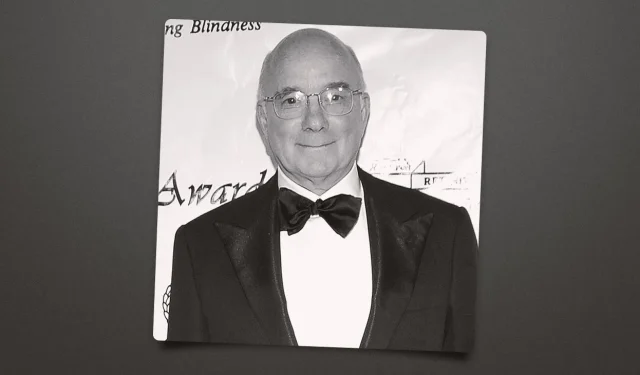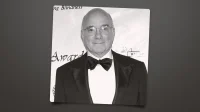In Memoriam: Stanley R. Jaffe, Influential Film Producer, Dies at 84
Stanley R. Jaffe, a renowned producer and studio executive celebrated for his contributions to classic cinema, passed away on Monday at his residence in Rancho Mirage, California. He was 84 years old. The news was confirmed by his daughter, Betsy Jaffe.
Illustrious Career Highlights
Jaffe’s illustrious career in film began in a family deeply rooted in Hollywood. As the son of Leo Jaffe, who dedicated over fifty years to Columbia Pictures, Stanley carved out his own legacy in the industry. His most significant accolade came in 1980 when he won an Oscar for Best Picture for Kramer vs. Kramer, a film that not only captured critical acclaim but also the zeitgeist of familial struggles amidst societal pressures. He also earned a nomination for Fatal Attraction in 1987, produced in collaboration with Sherry Lansing during their productive tenure at Jaffe-Lansing Productions.
A Visionary Leader at Paramount Pictures
At only 29, Jaffe became the youngest executive vice president and COO of Paramount Pictures in 1969, setting a historical precedent in Hollywood. His tenure saw the greenlighting of iconic films such as Love Story (1970) and The Godfather (1972), collaborating closely with influential production chief Robert Evans. Jaffe left Paramount in 1971 but returned to the studio ranks two decades later, being appointed president and COO of Paramount Communications. He transitioned to chairman in 1992, only to be let go when Viacom acquired Paramount for approximately $10 billion in 1994.
A Hands-On Approach to Storytelling
Known for his hands-on approach, Jaffe often selected projects that addressed complex familial dynamics. “The movies I am drawn to deal with the family and what it’s like to be a member of that family,”he shared with The New York Times after his directorial debut in Without a Trace (1983). His passion for storytelling culminated in the critically acclaimed Kramer vs. Kramer, which was adapted from Avery Corman’s manuscript before its publication, thanks to a timely connection made by Jaffe’s team.
Celebrated Oscar Success and Legacy
Jaffe’s bold choices in casting, particularly Meryl Streep, contributed to the profound impact of Kramer vs. Kramer, which ultimately took home five Academy Awards, including Best Picture. Touched by the recognition, he stated in his Oscar acceptance speech, “This [Oscar] has always been very important to all of us as a representation of excellence,” reflecting on the significance of the film’s themes around love and family.
Early Life and Inspiration
Born on July 31, 1940, in New Rochelle, New York, Jaffe’s early experiences were framed by his father’s illustrious career in the film industry. He recollected how his childhood home was filled with the influence of cinema, despite not mingling with stars. His formative years cultivated a desire to emulate producers like Sam Spiegel, who was known for bringing multiple Oscar-nominated films to fruition.
Academic Background and Initial Ventures
Graduating from the Wharton School at the University of Pennsylvania with a degree in economics in 1962, Jaffe entered the film industry as an assistant at Seven Arts. His journey quickly progressed, culminating in a pivotal role at Columbia Pictures as he orchestrated the production of films like Goodbye, Columbus (1969), making it a cornerstone of Paramount’s early success.
Later Years and Continued Contributions
Jaffe’s commitment to storytelling continued throughout the later stages of his career. In partnership with Lansing, he produced notable works, including Fatal Attraction, which remains a cultural touchstone. His production company churned out various successful films throughout the ’90s, such as Madeline (1998) and I Dreamed of Africa (2000), highlighting his enduring influence on the industry.
Conclusion
Stanley R. Jaffe leaves behind a profound legacy marked by his visionary leadership and commitment to nuanced storytelling in Hollywood. His contributions continue to resonate, reflecting a career shaped by passion, innovation, and an unwavering dedication to the art of film.


